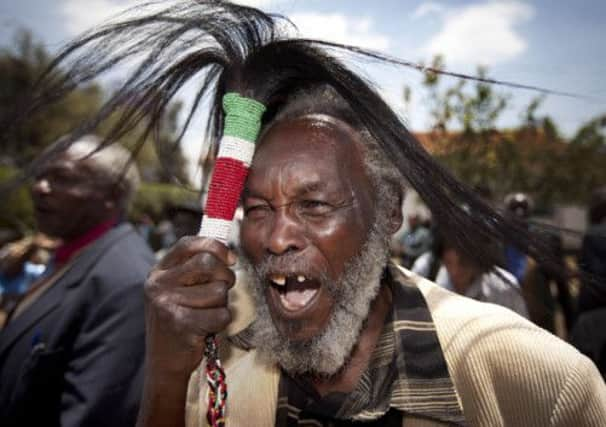UK brutality payout warning to Kenyans


Some of the herdsmen embraced polygamy, others bought new cars they did not know how to drive. Eleven years later, the Kenyan tribesmen compensated by Britain – as the victims of explosives left behind by British soldiers in training – say they regret their failure to use the cash responsibly.
“I cannot calculate the amount I spent on alcohol,” said Kipise Lourolkeek, 53, a Maasai elder who as a young herdsman in the 1970s was injured by an exploding object that he picked up in the plains.
Advertisement
Hide AdAdvertisement
Hide AdIn August 2002, Mr Lourolkeek was one of more than 220 victims of British ordnance, including mines, who won an out-of-court settlement from the British government of around £4.6 million.
Mr Lourolkeek, who was blinded in the left eye and had an arm shattered in the blast, was compensated with more than £141,000, a huge sum of money in a country where most live on less than £1.35 a day.
He says he made regrettable decisions based on advice from friends he respected. He married a third wife, bought three new cars, 210 cattle, 60 acres of land and 300 goats. Now almost all that wealth is gone, squandered in part through drink. In the two-bedroom shack he shares with some of his 13 children, said he believed at the time that the money would “never get finished” and is now urging the next beneficiaries to “live humbly.”
More than 70 per cent of the people compensated for their injuries squandered the money, said Peter Kilesi, a Kenyan legal officer who helped build the case against the British army.
However, the victims of British abuses who won compensation last month will not receive as much as Mr Lourolkeek was awarded 11 years ago. The settlement will pay about £14.4m to the 5,200 Kenyans who were found to have been tortured, or about £2750 per Kenyan victim.
Britain announced last month that it “sincerely regrets” the torture carried out by the colonial government as it tried to suppress the Mau Mau rebellion, during which groups of Kenyans attacked British officials and white farmers who had settled in some of Kenya’s most fertile lands.
Many of the now-elderly Mau Mau victims say they were beaten badly and sexually abused by British colonial officers in the 1950s and 1960s. Britain’s expression of regret was hailed here as a triumph for thousands of men and women who had waited years for some kind of justice.
George Morara, an official with the Kenya Human Rights Commission, which assisted the Mau Mau victims in their case, said he expects them to spend their money more responsibly than the traditional Maasai and Samburu. He said his organisation would help them get advice from financial consultants. However, some beneficiaries, such as Nthengi wa Kathyaka, 82, have other plans. The Mau Mau veteran, whose face was mauled by a guard dog while in detention, is thinking about marrying another wife despite having 11 children and 20 grandchildren.
He said: “My wife is old and cannot give birth, but I am still strong.”